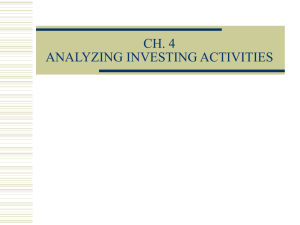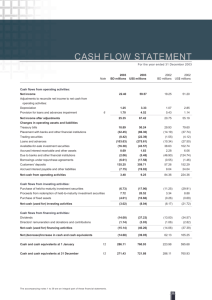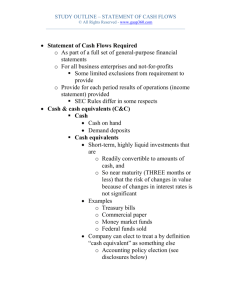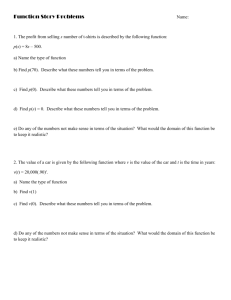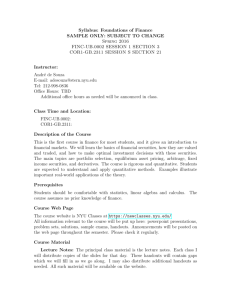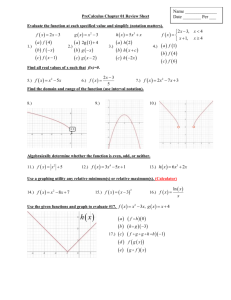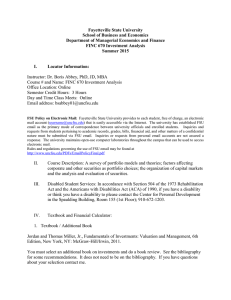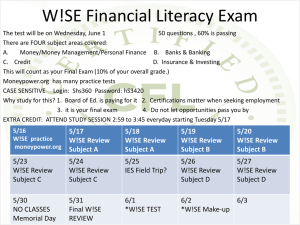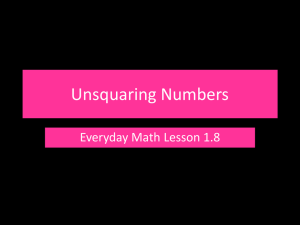Finance Honors Syllabus
advertisement
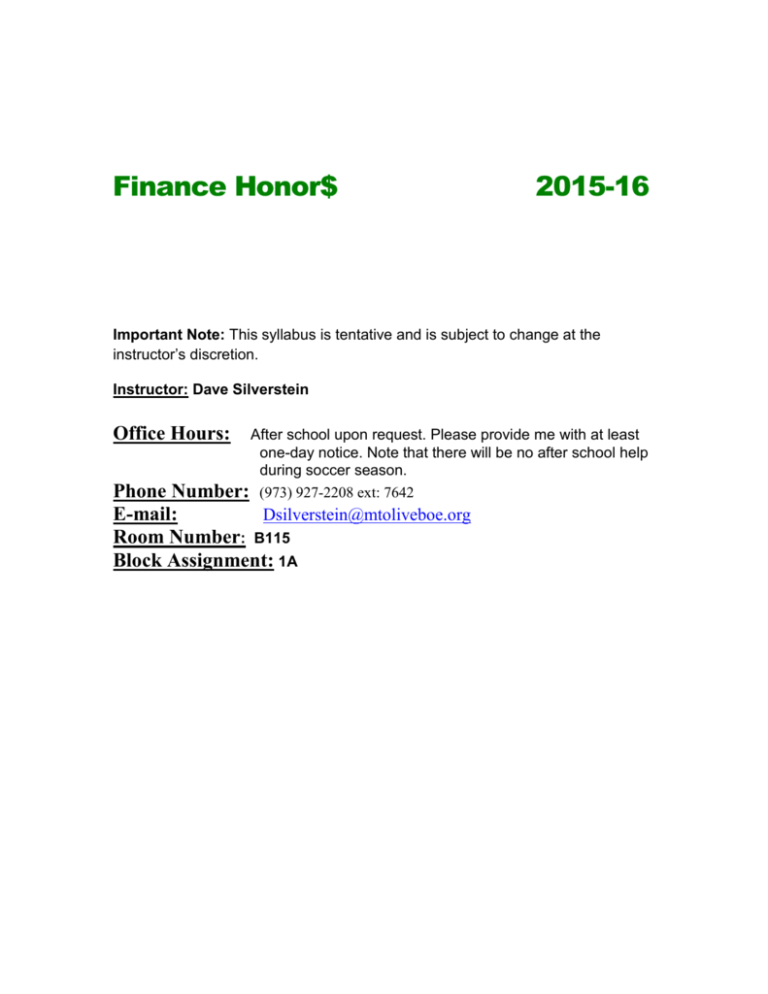
Finance Honor$ 2015-16 Important Note: This syllabus is tentative and is subject to change at the instructor’s discretion. Instructor: Dave Silverstein Office Hours: After school upon request. Please provide me with at least one-day notice. Note that there will be no after school help during soccer season. Number: (973) 927-2208 ext: 7642 Phone E-mail: Dsilverstein@mtoliveboe.org Room Number: B115 Block Assignment: 1A TARGET MARKET Finance Honors is the capstone class to the Federal Finance Career Cluster. As such, it builds on a student’s preexisting knowledge of accounting and business. Throughout students will connect the course material to what they have already learned in Accounting II Honors. This course is designed for students who are contemplating a career in the accounting or finance professions. This course is designed to attract future C.P.A. s, C.F.A.s, C.M.A.s, C.F.P.s, Financial Analysts, Licensed Stock Brokers, Financial Managers, Treasurers, Entrepreneurs, as well as a host of other financial careers. Finally, since this course will help students to better understand the world of investing and money, even non-business students will benefit, as they will learn to make better use of their free cash flow, regardless from how it was derived. COURSE DESCRIPTION AND OBJECTIVES Finance Honors is intended to introduce students to the fundamentals of modern finance. Students will engage in a rigorous study of financial theory. After learning fundamental theory, they will be in a position to apply their “ready intuition” to real world cases and projects. This course examines finance from the Individual Investor’s perspective (External Finance), and students will valuation of the firm from the standpoint of the external investor. Students learn finance by doing. Therefore, students will actively participate in the decisionmaking process, and they will see the results of their choices, Students will learn from the good judgment and the costly mistakes made by themselves and their teammates.. In addition, financial theory will encourage students to ask the right questions, and give students the confidence to undertake rational decisions when new and unfamiliar financial problems arise, whether in business or in their personal lives. This can only be accomplished through practical application of the concepts learned. Therefore, practical application of financial theory is an objective that permeates throughout the entire course content. PREREQUISITES This course is open to juniors and seniors who have successfully completed the following courses: 1) ACCOUNTING I 2) ACCOUNTING II HONORS 3) COMPUTER APPLICATIONS (strongly recommended) 4) MATH ANALYSIS OR HIGHER TEXTBOOK and INSTRUCTIONAL MATERIALS Herbert B. Mayo(2014) Investments, eleventh edition Upper Saddle River, NJ: South-western, Cengage Learning The Wall Street Journal will be used to examine current issues and emerging trends. The journal will also help students to strengthen their financial vocabulary, understand charts, and know where to go for up-todate investment information. Finally, the journal provides excellent reading on STAR days. The Hewlett Packard 17B II+ Financial Calculator. This calculator is recognized as the industry standard. Finance is an extremely fast paced field. Students must be able to generate accurate results quickly. Any reputable business school requires their students to purchase and utilize a financial calculator. By mastering the HP 17BII+ during high school, Mount Olive Students will gain a strong competitive advantage over their peers. Other materials will be used for instruction, including the Internet, magazines, periodicals, and other textbooks. GRADING POLICY MP 1 MP 2 MP3 MP4 Tests/Quizzes 35% 35% 35% 35% Homework 15% 15% 15% 15% 50% 50% 50% 50% Case Studies/ Classwork Assignments UNIT CONTENT DESCRIPTION APPROXIMAT NUMBER OF WEEKS A. The Investing Process and Securities Markets 1.5 B. Time Value of Money and Discounted Cash Flow Analysis 2 C. Risk Analysis, Risk Management, Required Return on Investment, and Portfolio Theory 2.5 D. Mutual Funds 2 E. Investing in Common and Preferred Equity Securities 8 F. Investing in Bonds and Fixed-Income Securities 6 G. Valuation of Common and Preferred Equity Securities 4 H. Behavioral Finance and Technical Analysis 3 I. Convertible Securities 1 J. Derivatives 5 K. Review for Final Exam 1 L. Elementary Business Statistics and Mathematical Modeling As Needed (see prerequisite section above) M. HP 17B-II+ Financial Calculator On-going N. Professional Ethics On-going O. Term Project, Case Studies and Classwork Assignments On-going
